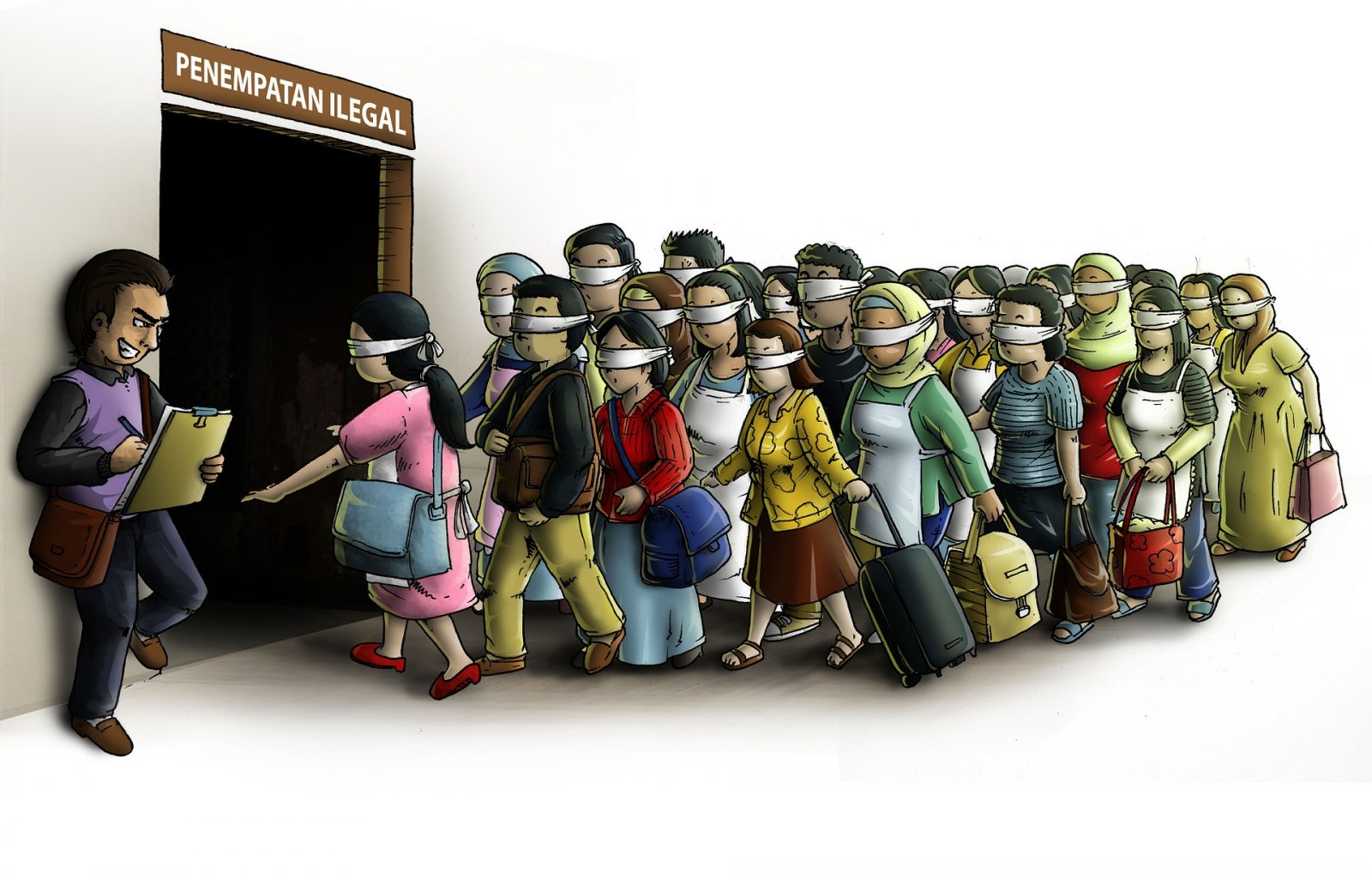HUMAN TRAFFICKING: A MODERN FORM OF SLAVERY
Feb 11, 2020
Story

The United Nations (UN) Declaration of Human Rights, Trafficking Protocol defines human trafficking as the recruitment, transportation, transfer, harbouring or receipt of persons, by means of threat or use of force or other forms of coercion, of abduction, of fraud, of deception, of the abuse of power or of a position of vulnerability or of the giving or receiving of payments or benefits to achieve the consent of a person having control over another person, for the purpose of exploitation. Exploitation shall include, at a minimum, the exploitation of the prostitution of others or other forms of sexual exploitation, forced labour or services, slavery or practices similar to slavery, servitude or the removal, manipulation or implantation of organs; It's the consent of a victim of trafficking in persons to the intended exploitation set forth in sub-paragraph of this article shall be irrelevant where any of the means set forth in subparagraph have been used; The recruitment, transportation, transfer, harbouring or receipt of a child for the purpose of exploitation shall be considered "trafficking in persons" even if this does not involve any of the means set forth in sub-paragraph of this article and "Child" shall mean any person under eighteen years of age. That is, according to Wikipedia, it is the trade of humans for the purpose of forced labour, sexual slavery, or commercial sexual exploitation for the trafficker or others. It ranges from forced labour, child trafficking, forced marriage, trafficking for organ trade, debt bondage to sex trafficking.
Human Trafficking Hotline defines it as a means of stealing someone else's freedom. That is, victims are lied to, assaulted, threatened or manipulated into working under inhumane, illegal or otherwise unacceptable conditions. It is a multi-billion dollar criminal industry that denies freedom to 24.9 million people around the world. It, according to the International Conventions is condemned as the violation of human rights. It is a crime against the person because of the violation of the victim's rights of movement through coercion and because of their commercial exploitation. It is the trade in people, especially women and children, and does not necessarily involve the movement of the person from one place to another. That is, you don't have to travel from your country to the other before you are trafficked. Anyone can be trafficked in their state or country; home or community or family.
It therefore is a form of slavery because it uses force, fraud or coercion which makes victims either show signs that their movement is controlled, have false identity or travel documents, do not know their home or work address, have no access to their earnings, unable to negotiate working conditions, ork excessively long hours over long periods, have limited or no social interaction, have limited contact with their families or with people outside of their immediate environment or think that they are bonded by debt. It's a means of controlling and exploiting mostly children and women because they are the most vulnerable in respect to the United Nations Office for Drugs and Crime which states that 51% of identified victims of trafficking are women, 28% children and 21% men. Also, 72% people exploited in the sex industry are women.
Human trafficking is often a hidden crime. Victims may be afraid to come forward and get help; they may be forced or coerced through threats or violence; they may fear retribution from traffickers, including danger to their families; and they may not be in possession of or have control of their identification documents. It happens in any country. Nigeria is not an exception. Victims can be any age, race, gender, or nationality. They may come from any socioeconomic group. Also, it's not limited to sex trafficking. It encompasses labour and child marriage as well. Victims are found in legitimate and illegitimate labor industries, including sweatshops, massage parlors, agriculture, restaurants, hotels, and domestic service.
By the way, it is important to know that people smuggling is different from human trafficking. The former involves the illegal movement of people across international borders for a fee while the latter involves exploiting people within a place or outside. It doesn't necessarily have to be across the border. Human trafficking can be done anywhere. Traffickers might use violence, manipulation, or false promises of well-paying jobs or romantic relationships to lure victims into trafficking situations while victims due to the desire to pursue a better life; school or work abroad or just to make end meets become victims. They mostly fall into sex trafficking which the society calls prostitution but the law calls sex trafficking. What do you think about this?
I'd discuss this in my next blog post but before then, what do you think about sex trafficking? Thank you for following.




